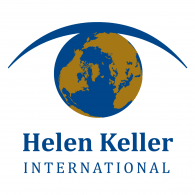Job Vacancies at United Nations International Children’s Emergency Fund (UNICEF) – 3 Positions
United Nations International Children's Emergency Fund (UNICEF) is recruiting to fill the following positions:
1.) International Individual Consultant / Contractor - Immunization
2.) FT Communications Officer (NOB)
3.) Individual Contractor for ending FGM
United Nations International Children's Emergency Fund (UNICEF) works in some of the world’s toughest places, to reach the world’s most disadvantaged children. To save their lives. To defend their rights. To help them fulfill their potential. Across 190 countries and territories, we work for every child, everywhere, every day, to build a better world for everyone.
(adsbygoogle = window.adsbygoogle || []).push({});
See job details and how to apply below.
1.) International Individual Consultant / Contractor - Immunization
Job No.: 537303
Location: Bauchi
Contract Type: Consultancy
Categories: Health, Expanded Programme Immunization, Consultancy, Programme Management
For Every Child, Health
The routine immunization coverage in Nigeria has been very low for decades. According to the WHO- UNICEF Estimate, the 2016 DPT3 coverage was 49% and MCV1 coverage was 51%. In 2016 NICS/MICS national coverage of Penta3 was 33.6% and the state coverage range were between ranging from 3-80%.
Lagos is the highest state with 80.2 % of Penta3 and Sokoto State with 3% of Penta3. Kano state is among the lowest State with 19.9 % of Penta3. Only 17.5% of children were fully Immunized. It was observed the huge disparity between the northern states and the southern States respectively 61% of children were not immunized in the North West States and only 8% were not Immunized in the South East States.
It was also noted the disparities in immunization coverage, regarding the area of residence the coverage was only 25% in rural areas while 51% of penta3 was reported in the urban area. The caretaker’s age represented 15% of coverage between 15 to 19 years and 32 to 39 % of penta3 coverage between 30 to 39 years.
Caretaker’s Education was respectively 9% of coverage for the Non-formal education and the highest education was 74% of Penta3 coverage. The index quintile shows only 10% of children Immunized for the poorest quintile against 63% of Penta3 for the Richest.
How can you make a difference?
The main objective of the consultancy is to:
- Reach the un-immunized and under-immunized and improve equity in the assigned State by end of the assignment.
- To achieve this, the consultant will provide strong capacity and technical leadership and guidance to SERICC, transitioning polio assets to immunization, review available data, plan equitably and address bottlenecks in the immunization programme of the State, with emphasis on routine immunization, measles control, and polio eradication initiative.
- Support the improvement in PHC services with a focus on the roll-out and strengthening the one PHC per ward and community health services.
Requirements
To qualify as an advocate for every child you will have…
- MBBS and a Master's Degree in Public Health or a Health-related Technical field.
- At least 8 years progressively responsible experience in designing, implementing and evaluating health projects particularly, immunization programmes, and at least one year’s internal experience.
- Fluency in oral and written English is required. Knowledge of another UN working language an asset. Knowledge of the local working language of the duty station, an asset.
- Knowledge of the latest developments and technology in related fields.
- Computer skills, including internet navigation and various office applications.
- Demonstrated ability to work in a multi-cultural environment and establish harmonious and effective working relationships, both within and outside the organization.
- Commitment to continuous learning for professional development, Initiative, passion, and commitment to UNICEF’s mission and professional values.
For every Child, you demonstrate…
- UNICEF's core values of Care, Respect, Integrity, Trust, and Accountability (CRITA), and
Core Competencies:
- Demonstrates Self Awareness and Ethical Awareness (3)
- Works Collaboratively with others (3)
- Builds and Maintains Partnerships (3)
- Innovates and Embraces Change (3)
- Thinks and Acts Strategically (3)
- Drives to achieve impactful results (3)
- Manages ambiguity and complexity (3)
Functional Competencies
- Analyzing (2)
- Applying Technical Expertise
- View our competency framework at: https://unicef.sharepoint.com
Application Closing Date
24th January, 2021. W. Central Africa Standard Time.
How to Apply
Interested and qualified candidates should:
Click here to apply online
Click here for more information on the TOR (Ms Word)
Note
- Only shortlisted candidates will be contacted and advance to the next stage of the selection process.
- Individuals engaged under a consultancy or individual contract will not be considered “staff members” under the Staff Regulations and Rules of the United Nations and UNICEF’s policies and procedures, and will not be entitled to benefits provided therein (such as leave entitlements and medical insurance coverage).
- Their conditions of service will be governed by their contract and the General Conditions of Contracts for the Services of Consultants and Individual Contractors.
- Consultants and individual contractors are responsible for determining their tax liabilities and for the payment of any taxes and/or duties, in accordance with local or other applicable laws.
2.) FT Communications Officer (NOB)
Job No.: 537393
Location: Abuja
Contract Type: Fixed Term Appointment
Level: NO-2
Categories: Communication / External Relations, NO-2
Background
The fundamental mission of UNICEF is to promote the rights of every child, everywhere, in everything the organization does - in programs, in advocacy and in operations. The equity strategy, emphasizing the most disadvantaged and excluded children and families, translates this commitment to children’s rights into action.
For UNICEF, equity means that all children have an opportunity to survive, develop and reach their full potential, without discrimination, bias or favoritism. To the degree that any child has an unequal chance in life - in its social, political, economic, civic and cultural dimensions - her or his rights are violated.
There is growing evidence that investing in the health, education and protection of a society’s most disadvantaged citizens - addressing inequity - not only will give all children the opportunity to fulfill their potential but also will lead to sustained growth and stability of countries. This is why the focus on equity is so vital. It accelerates progress towards realizing the human rights of all children, which is the universal mandate of UNICEF, as outlined by the Convention on the Rights of the Child, while also supporting the equitable development of nations.
(adsbygoogle = window.adsbygoogle || []).push({});
How can you make a difference?
- The Communications Officer at the NO-2 level reports to the Chief of CAP, P5, based in Abuja.
- Assists in planning, implementing, monitoring and evaluating an advocacy and communication strategy to get children’s and women’s issues into the public domain, especially through social media, strengthen political will in support of UNICEF's mission and objectives in the country, and enhance the organization’s credibility and brand.
Key Functions, Accountabilities and Related Duties / Tasks
- Communications strategy: The production of communication products and materials - especially for social media - is executed in a timely way and followed up to support the country office communications and advocacy strategy, regional and global campaigns and priorities, and to support resource mobilization and donor visibility, as set out in the work plan.
- Ensure digital content and engagement efforts are sufficiently integrated into the overall strategy.
- Media relations: Effective and timely professional assistance and support are provided in developing, drafting and maintaining contact information, materials and relationships with journalists and media outlets covering all media - print, TV, radio, web etc. - in the country, to communicate the story of UNICEF's cooperation to a wider audience.
- Monitoring and evaluation: Regular monitoring and evaluation of activities, including social media presence, are undertaken according to the work plan to ensure maximum impact and continuous improvement of country-level communication efforts. Results and reports are prepared and shared in a timely manner.
- Celebrities, partners and special events: The Country Office’s contact list of key influencers, individuals, groups, organizations and fora (including Government, UN, and bilateral counterparts), is maintained and further developed, including especially those whose support is essential to/can assist in achieving the advocacy and communications objectives and those who support and are able to actively participate in special events and activities that further the country programme goals.
Requirements
Education:
- University Degree in Communications, Journalism, Public Relations or a related field.
Experience:
- Two years work experience in communication, print and broadcast media, or interactive digital media.
- International and national work experience (for IP). Fieldwork experience (for NO)
- Background/familiarity with emergency situations.
Language Requirements:
- Fluency in English is required. Knowledge of another official UN language or local language of the duty station is considered as an asset.
Technical Knowledge
Specific Technical Knowledge Required:
Specific and up-to-date working knowledge of:
- Social media platforms, including Twitter, Facebook, Instagram, Snapchat, and social media presence monitoring tools.
- UNICEF communication and other DOC guidelines
- Communication toolkit
- Brand Toolkit and Brand Book
- UNICEF Stylebook
- Ethical Guidelines on Reporting on Children.
Common Technical Knowledge Required:
General knowledge of:
- Communication practice, methodology and practical application. Knowledge of current theories and practices in communication research planning and strategy.
- Fundamentals of working in various media formats - print, audio, video, web etc.
- Computer systems, including internet navigation, office applications, and specifically, interactive digital media.
- United Nations or other international organizations; good understanding of world affairs, current events and international development issues
- Global human rights issues, specifically relating to children and women, and current UNICEF position and approaches.
- UNICEF communication goals, visions, positions, policies, guidelines and strategies.
- UNICEF policies and strategy to address national and international issues, including emergencies.
- UNICEF emergency communication policies, goals, strategies and approaches, including emergency preparedness.
- Gender equality and diversity awareness.
Technical Knowledge to be Acquired / Enhanced:
- Knowledge and expertise in management, communication strategy and networking.
- Technical competence in producing content for various media formats – print, audio, video, web etc.
- UN policies and strategy to address international humanitarian issues and responses.
- UN common approaches to programmatic issues and UNICEF positions
- UN security operations and guidelines.
For every Child, you demonstrate...
- UNICEF's values of Care, Respect, Integrity, Trust, and Accountability (CRITA) and core competencies in Communication, Working with People and Drive for Results.
Core Competencies (Required)
- Nurtures, Leads and Manages People (II)
- Demonstrates Self Awareness and Ethical Awareness (II)
- Works Collaboratively with others (II)
- Builds and Maintains Partnerships (II)
- Innovates and Embraces Change (II)
- Thinks and Acts Strategically (II)
- Drives to achieve impactful results (II)
- Manages ambiguity and complexity (II)
Functional Competencies (Required):
- Persuading and Influencing (I)
- Applying Technical Expertise (I)
- Learning and Researching (II)
- View our competency framework at: http://www.unicef.org/about/employ/
Application Closing Date
25th January, 2021. W. Central Africa Standard Time.
How to Apply
Interested and qualified candidates should:
Click here to apply online
Note: Only shortlisted candidates will be contacted and advance to the next stage of the selection process.
3.) Individual Contractor for ending FGM
Job no: 537313
Location: Nigeria
Categories: Child Protection
Level: Consultancy
Contract type: Consultancy
Background
- FGM remains widespread in Nigeria. According to the MICS 2016 -2017, 18.4% of women aged 15-49 years had undergone FGM which is a decrease from 27% in 2011 (NBS & UNICEF 2011; NBS & UNICEF 2017).
- Statistics from the 2013 National Demographic Health Survey stated that the overall prevalence of girls and women aged 15-49 years who have undergone Female Genital Mutilation (FGM) in Nigeria (25%) is lower than in many countries.
- However, due to its large population, Nigeria has the third highest absolute number of women and girls who have undergone FGM worldwide after Egypt and Ethiopia.
- An estimated 19.9 million Nigerian women have undergone FGM meaning that approximately 10% of the 200 million FGM survivors worldwide are Nigerian (UNICEF 2016).
- The practice of FGM is most prevalent among Yoruba women (55%), followed by Igbo women (45%). In 2014, UNFPA/UNICEF Joint Programme (JP) in collaboration with Federal/State Ministries of Health, Federal/State Ministry of Women Affairs and Social Development commenced a 4-year programme aimed at achieving the abandonment of Female Genital Mutilation/Cutting in the next generation in line with United Nation General Assembly Resolution A/RES/67/146 of 2012 and Sustainable Development Goal 5 target 3 using a common coordinated approach and mixed strategy of advocacy, legal/policies reforms, capacity building for social change.
- Based on the result of an in-depth study on social norms in five FGM/C high prevalence States (Ebonyi, Imo, Ekiti, Osun and Oyo) and Lagos State, UNICEF is currently coordinating the implementation of a jointly-developed state specific communication plan, using evidenced-based programming and existing community structures to create network of community champions and reference groups to create a positive social norm and expectations that will motivate community adherents to FGM to abandon the practice.
Justification / Rationale
- UNICEF in partnership with UNFPA and in collaboration with government at Federal, state level and Civil Society Organizations has been implementing a joint programme on Female Genital Mutilation and Cutting (FGM/C) (SC170505) in five states, namely, Ebonyi, Ekiti, Imo, Osun and Oyo. Nigeria joined in Phase II (2014 – 2017) of the UNFPA UNICEF Joint programme on the elimination of FGM.
- The four-year joint programme commenced in January 2014 with the aim of contributing to an estimated 40% reduction in the practice of FGM among girls aged 0-14 years in at least 5 countries with at least one country declaring total abandonment of FGM by the end of the programme in line with United Nations General Assembly Resolution A/RES/69/150 “Intensify global efforts to eliminate female genital mutilations”.
- UNICEF is responsible for the implementation of outcome three of the joint Programme (most individuals, families and communities in programme areas accept the norm of eliminating FGM).
- This key result area contributes to other result areas including ‘individuals, families and communities in Programme areas increasingly being educated about the harms and norms related to FGM and alternatives practice and individuals including families and communities increasingly mobilizing collectively to abandon FGM.
- Based on the progress made by Nigeria since the inception of the Joint Programme on FGM and UNICEF commitment to Sustainable Development Goal 5.3 as reflected in the strategic plan 2018 -2021 Goal 3 Result 2 , Nigeria alongside seven other countries (Burkina Faso, Djibouti, Egypt, Ethiopia, Kenya, Senegal and Sudan) has been classified as a Tier 1 country for FGM Programme and has secured a place in the phase III of the joint UNFPA/UNICEF Programme on FGM 2018 - 2021 for another four year period.
- The vision of the Joint Programme in Phase III which commenced in 2018 is to contribute to the elimination of FGM by 2030, in line with Target 5.3 of the SDGs, which calls for the elimination of harmful practices.
- This will be achieved through intergenerational change, in which girls in the immediate term are kept intact and future generations of mothers are free to choose not to cut their daughters. The goal of Phase III of the Joint Programme (JP) is to accelerate efforts towards the reduction of FGM, fulfilling the rights of girls and women by realizing social and gender norms transformation by 2021.
- Despite the progress made so far, there is still need to intensify intervention especially at the community level due to the nature of FGM which is deeply rooted in age-long culture and tradition, myths, misconception built around social norms.
- Many communities are still internalizing messages received on the harmful effects of FGM on women and girls and it will take some time for the communities to reach the point of collective decision and public declaration of abandonment.
- Some other communities have been mobilized and are at the tipping point of taking collective decision for public declaration of abandonment.
- This is in addition to the emerging and increasing trend of medicalization of FGM by health workers, limited or lack of enforcement/implementation of law prohibiting FGM (where such law exists) including weak capacity to plan, implement, monitor and generate data for evidence informed advocacy and budgeting for sustainable FGM abandonment Programme. Based on these issues, there is need to deepen as well as sustain ongoing interventions in the five states as well as step up engagement with a critical mass of FGM abandonment influencers who have been mobilized at all levels and actively leading community mobilization and dialogues to change existing social norms influencing FGM.
- This is in addition to a huge population of young people who have been mobilized and are actively creating a movement as social media advocates using the platform for advocacy, awareness creation and engagement of young people for FGM abandonment.
- Achievements have been recorded in this regard with many communities in the focus states making public declaration of abandonment of FGM.
- As more communities publicly declare abandonment of FGM, it has also become necessary to establish community-based monitoring/surveillance systems to ensure conformity to the new norm of “not cutting girls”.
- It is therefore imperative to build on and sustain ongoing progress, achievements as well as strategically position UNICEF to sustain momentum on FGM intervention at State, LGA and Community levels towards contributing to achieving SDG 5.3.
- The Child Protection section is therefore looking for a contractor to support implementation of the JP activities in the focus states of Ekiti, Osun and Oyo in the South West.
- The contractor’s job descriptions include assisting in the implementation and monitoring of the Joint UNFPA/UNICEF Programme on FGM in the focus states including capacity development of implementing partners on Programme implementation, Monitoring and Result Based Management Framework, development and implementation of the Joint Programme states’ action plan ensuring alignment and synergy with the joint Programme strategic goal, outcomes with linkages to the indicators to accelerate efforts towards the reduction/elimination of FGM.
(adsbygoogle = window.adsbygoogle || []).push({});
Work Assignment Overview:
- Community system (using local leaders and youth leaders linked to government system) for surveillance and enforcement of legislation including Community surveillance system consisting of champions and volunteers that work in a coordinated manner to prevent, respond to and monitor FGM at local government and community level in focus states on the status of uncut girls established and implemented.
- Linkages among the different services to ensure integration, referral systems/mechanism, promote systemic approach to facilitate service delivery through creating functional referral linkage created
- Monthly updates FGM/C Programme at state and LGA documented provided for uploading on UNICEF Facebook and twitter accounts
- Tools for tracking FGM cases through institutions (Police, Civil Defence, Judiciary), national/state committee coordinating anti- FGM response and systematically track cases of enforcement at various stages: arrested, prosecuted, trial developed
- Partnership established with child protection networks at different level to systematize and strengthen service provision, action developed and implemented
- Strategy for enhanced engagement of men and boys developed and implemented
- Report on engagement with media including social media (particularly among the youth), community radios shared bimonthly
- Monthly engagement/dialogue with key community, LGA and state-level stakeholders, faith-based organizations, youth forum including schools, colleges, groups, networks communities on FGM abandonment initiated and ongoing with summary monthly report/feedback
- Innovative youth-led events on FGM abandonment including the use of social media and edutainment (drama, folksongs etc.) organized and documented in selected LGAs and communities of focus states
- Quarterly State Technical Committee on FGM/C meeting convened, and outcome used to adjust State and LGA implementation/communication and monitoring plan
- Monthly tracking of female newborn in focal communities in collaboration with identified community watchdogs to monitor and follow-up these children including trend analysis on FGM at state, LGA and communities reported
- Submission of monthly progress report with multimedia materials, case studies and human-interest stories
Minimum Qualifications Required
- Master’s degree in social/behavioural sciences (Health Education, Community development, Sociology, Anthropology).
- Minimum of 2 years’ experience but candidates with longer years of progressively responsible work experience in community mobilization and engagement with key community gatekeepers and social development programmes at the community level will be preferred.
- Proven skills in partnership building, networking, advocacy, negotiation and organising community dialogues, campaigns and special events around social norm changes especially on ending FGM at community levels would be an advantage.
- Good understanding and experience in the field of social norms, gender and gender-based violence, community dynamics.
- Ability to express clearly and concisely ideas and concepts in written and oral forms.
- Knowledge of issues related to violence against children and child protection is required
- Leadership and participation in previous assignment and in capacity similar or higher than this assignment
- Expertise in community mobilization and engagements, and sociocultural relations in the selected areas.
- Proven ability to work independently
Competencies:
- Analytical, conceptual ability.
- Networking and partnership skills.
- Communication, documenting and report writing skills.
- Fluency in English- and local language of respective state of assignment.
- Computer skills, including various office applications and internet navigation skills.
Application Closing Date
20th January, 2021. W. Central Africa Standard Time.
How to Apply
Interested and qualified candidates should:
Click here to apply online
Note:
- UNICEF's values of Care, Respect, Integrity, Trust, and Accountability (CRITA) and core competencies in Communication, Working with People and Drive for Results.
- UNICEF is committed to diversity and inclusion within its workforce, and encourages all candidates, irrespective of gender, nationality, religious and ethnic backgrounds, including persons living with disabilities, to apply to become a part of the organization.
- UNICEF has a zero-tolerance policy on conduct that is incompatible with the aims and objectives of the United Nations and UNICEF, including sexual exploitation and abuse, sexual harassment, abuse of authority and discrimination. UNICEF also adheres to strict child safeguarding principles. All selected candidates will be expected to adhere to these standards and principles and will therefore undergo rigorous reference and background checks. Background checks will include the verification of academic credential(s) and employment history. Selected candidates may be required to provide additional information to conduct a background check.
- Only shortlisted candidates will be contacted and advance to the next stage of the selection process.
- Individuals engaged under a consultancy or individual contract will not be considered “staff members” under the Staff Regulations and Rules of the United Nations and UNICEF’s policies and procedures, and will not be entitled to benefits provided therein (such as leave entitlements and medical insurance coverage). Their conditions of service will be governed by their contract and the General Conditions of Contracts for the Services of Consultants and Individual Contractors. Consultants and individual contractors are responsible for determining their tax liabilities and for the payment of any taxes and/or duties, in accordance with local or other applicable laws.
(adsbygoogle = window.adsbygoogle || []).push({});
Recent Posts:
[recent_post_slider design="design-4" category="" dots="false"]
(adsbygoogle = window.adsbygoogle || []).push({});
Apply for job
Related Jobs
Discover more from Careerical eConsult
Subscribe to get the latest posts sent to your email.





